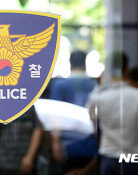Loss of check and balance
Loss of check and balance
Posted May. 21, 2020 07:29,
Updated May. 21, 2020 07:29
The ruling and opposition parties held the last plenary session of the 20th National Assembly Wednesday and passed more than 100 bills, such as COVID-19 relief aid and launching new investigations on unresolved historical issues. The 20th National Assembly practically ended with Wednesday’s plenary session although 29 days are left until its official term ends.
The 20th National Assembly lost its function as deliberative politics. The National Assembly has become a battlefield between the ruling and opposition parties especially after the impeachment vote of former President Park Geun-hye was passed on Dec. 9, 2017. The main opposition Liberty Korea Party (LKP) was completely excluded from the deliberation process of the Public Official Election Act and the establishment of an independent body to probe corruption by high-ranking public officials. Rival parties ended up creating ugly scenes of physical scuffles. There was even an unprecedented incident, where the electoral reform bill was unilaterally processed by the so-called “four-plus-one consultative body” from the ruling bloc when it was considered an unwritten rule by the past parliaments to reach an agreement when dealing with an election act. The past four years have been filled with political maneuvers instead of negotiations.
No wonder the 20th National Assembly was so unproductive with lawmakers from the both ruling and opposition parties closing their ears to the voices of the public and being obsessed with political gains. A total of 24,081 bills were proposed during the 20th National Assembly but less than 40% (8,819) of them were passed as of May 18. The 20th National Assembly is on its way to become the worst national assembly since the nation’s democratization by falling below the lowest bill passage rate held by the 19th session (41.7%).
The bigger problem is the core function of the National Assembly, which is holding the administration in check, did not work in the past four years. Since taking office, President Moon Jae-in has appointed 23 minister-level officials, the highest number in history, without asking the National Assembly for a confirmation hearing report. The number is much higher than 17 for the Lee Myung-bak administration, 10 for the Park Geun-hye administration, and three for the Roh Moo-hyun administration. A confirmation hearing has become a useless formality although it is an authority given to the National Assembly in order to institutionally implement the separation of powers stipulated in the Constitution. The National Assembly has abandoned the principle of free democracy, which is check and balance, by turning a blind eye to the presidential office Cheong Wa Dae’s arbitrary actions.
The 21st National Assembly, which takes office on next Saturday, must restore its original legislative function. There should be a proper level of tension between Cheong Wa Dae and the National Assembly to keep each other in check. The same can be said with the operation of the National Assembly. It is not right for the opposition parties to find faults with every bill and boycott votes. It is also not appropriate for the ruling bloc to be obsessed with fast-tracking bills with a combined 177 seats in the National Assembly. Having how many seats in the Assembly matters, but governance through dialogue and negotiation is more important. The election of the National Assembly speaker and the standing committee will be the first test bed for the 21st National Assembly. It should regain the confidence it has lost by learning from the mistakes made by its predecessor.







